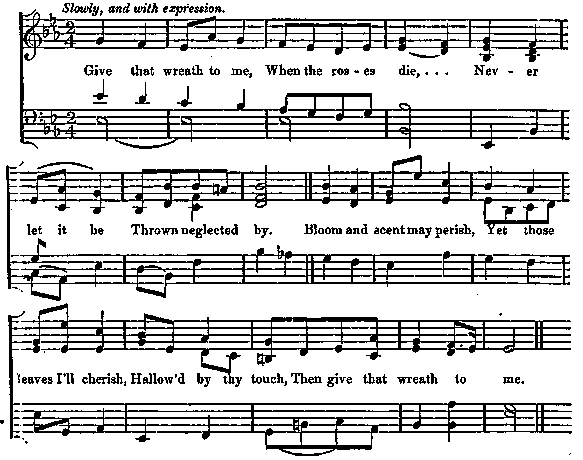Popular Music Of The Olden Time Vol 2
Ancient Songs, Ballads, & Dance Tunes, Sheet Music & Lyrics - online book
| Share page | Visit Us On FB |
|
|
|||
|
was led to the scaffold in 1746. About the same period some words were written to it, entitled " A song made on the Peace," a copy of which, bearing the prefix of "Farewell, Manchester," and printed with the music, is in the British Museum (G. 307, p. 230). The song of Farewell, Manchester, is, in all probability, irrecoverably lost.
The tune has continued in public favour ever since. Felton's variations on it were kept in print till within the last thirty or forty years, and the Song on the Peace, " Fill, fill, fill the glass," was sung to the air, within the memory of several of my musical friends, as arranged for three voices. The following are the words:— |
|||
|
|
|||
|
|
|||
|
" Fill, fill, fill the glass, Briskly put it round ; Joyful news at last
Let the trumpet sound. Join, with lofty strains, Lovely nymphs, jolly swains; |
Peace and plenty shall again With wealth be crown'd.
Come, eome, come, sweet peace,
Ever welcome found; Let all discord cease, |
||
|
Harmony abound. Join with, &c.
The tune is now well known by T. Haynes Bayly's song, " Give that wreath to me," which Sir John Stevenson adapted to it about twenty-five years ago, and which was arranged for three voices by the late T. Phillips. Charles Mackay also wrote a song, " Through the summer night," which was published in The Illustrated London News, arranged to the air by Sir Henry Bishop.
Two versions of the tune were printed in National English Airs. It is here coupled with the first stanza of Haynes Bayly's song. |
|||
|
|
|||
 |
|||
|
|
|||